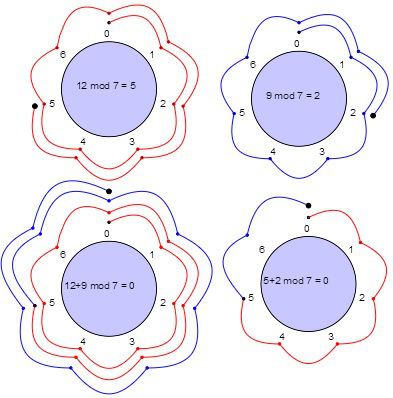
Prove
$(a|b) \land (a|c) \Longrightarrow (a | b+c)$
$\exist (a \in \mathbb{Z}) \land \exist (b \in \mathbb{Z}) \land \exist (c \in \mathbb{Z})$
$(a|b) \land (a|c) \Longrightarrow (a | b+c)$
Let $a$, $b$, and $c$ be integers. Prove that $(a|b)$ and $(a|c)$ implies $(a|b + c)$
(21)
$a | b \Longleftrightarrow \exists (k \in \mathbb{Z}) \land (b = ka)$
From (3) we know that declaring $a | b$ is equivalent to declaring that there exists some integer $k$ such that $b = ka$
(22)
$a | c \Longleftrightarrow \exists (l \in \mathbb{Z}) \land (c = la)$
From (3) we know that declaring $a | c$ is equivalent to declaring that there exists some integer $l$ such that $c = la$
(23)
$(a | b) \land (a | c) \Longleftrightarrow \left[\exists (k \in \mathbb{Z}) \land (b = ka)\right] \land \left[\exists (l \in \mathbb{Z}) \land (c = la)\right]$
Let's conjoin (22) and (24).
(24)

Would you please pause and reflect on 13 for a moment?